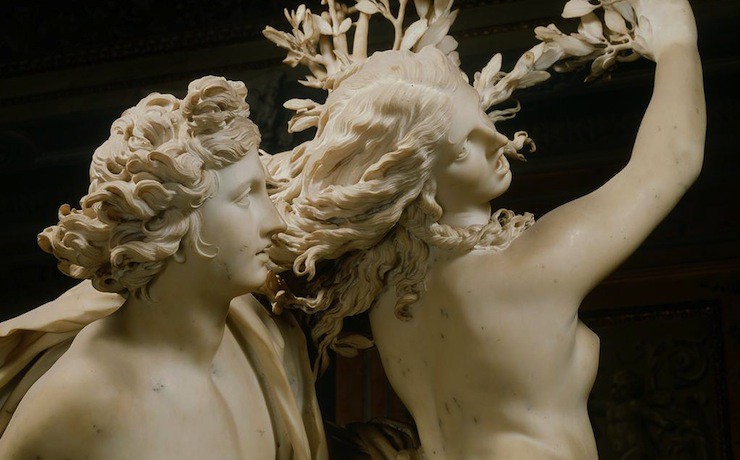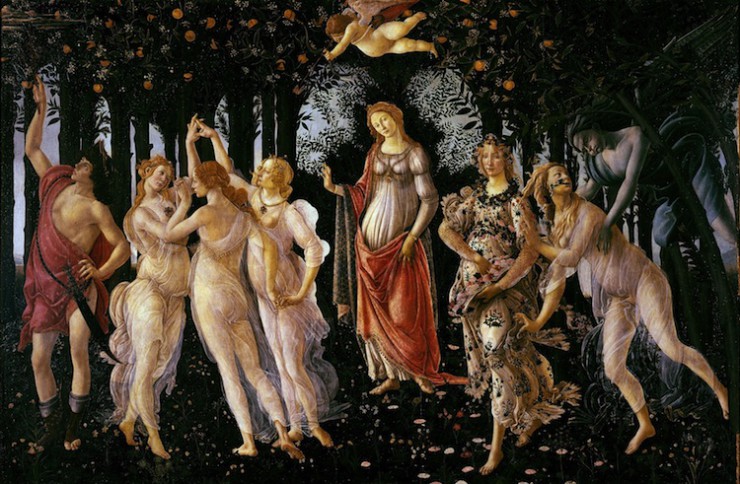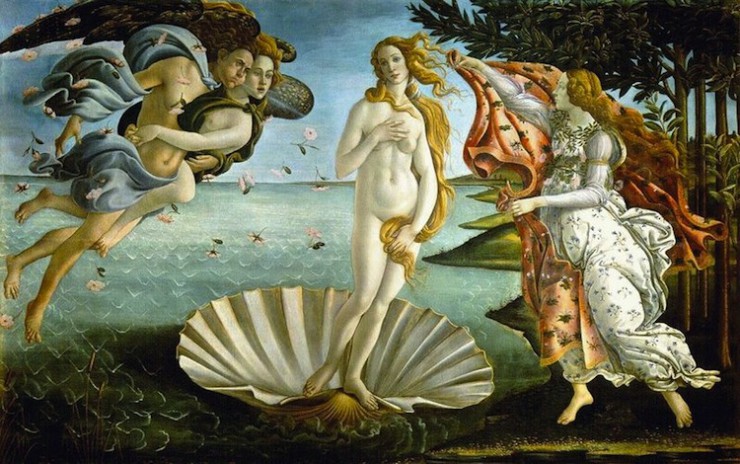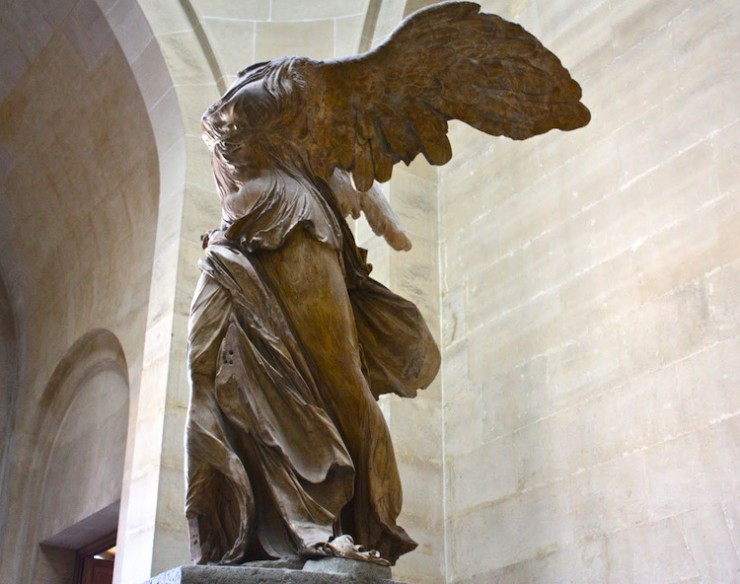It’s a perennial question among comics fans: flight or invisibility? This is a simple test to see where your values are. If you answer flight, you’re a free-spirited romantic. Invisibility? You’re a skeevy perv not fit for human society. Insist that those choices suck, and that you want something really cool like invincibility or teleportation? Then your friends will just yell at you.
The real point of the question is to force you to make a choice, and live with the consequences. A thousand years ago, I taught a comics class, and one of the first things I drilled into my kids’ hopeful noggins was, yes, you can have any power you want. Anything. BUT. That power, no matter how awesome, will come with a weakness. This was disturbing to them, because they thought they’d signed on for a fun class about superheroes, and here I was forcing them to learn that with great power must come great responsibility…
Actually, lets back up a bit.
So, one of the greatest moments in western history occurs in Mark Twain’s novel The Adventures of Huckleberry Finn. Some of you have probably read it, but just in case: Huck wants to run away from civilization, and somewhat reluctantly teams up with Jim, an escaped slave. Huck has grown up in Missouri and considers slavery not only normal, but morally correct, so abetting Jim weighs heavily on his conscience. Late in their trip, he gets a chance to turn Jim in and return to civilization.
I felt good and all washed clean of sin for the first time I had ever felt so in my life, and I knowed I could pray now. But I didn’t do it straight off, but laid the paper down and set there thinking—thinking how good it was all this happened so, and how near I come to being lost and going to hell.
Huck thinks about it for a long moment, weighing his soul against what he sees as his sinful love and empathy for Jim. Rather than moving on with his life, he forces himself to remember their adventures on the river together, particularly dwelling on all the kind things Jim has done for him, and the fact that Jim has referred to him as “his best friend.”
It was a close place. I took it up, and held it in my hand. I was a trembling, because I’d got to decide, forever, betwixt two things, and I knowed it. I studied a minute, sort of holding my breath, and then says to myself: “All right, then, I’ll go to hell”—and tore it up.
This is important for two reasons: the big obvious one is that a white boy chooses his friendship with a black man over white society, and (setting aside the fact that there are many, many problematic aspects to AHF from our 21st Century perspective) I want to acknowledge that Mark Twain went ahead and imagined a society where such a friendship was not only possible, but the only correct moral decision. The other important aspect here, from a writer’s perspective, is that he gave his character a moment of choice. Twain sits with Huck, watching as he turns his options over in his mind, and allows the reader to do the same. Or, really, forces the reader to do the same. Ideally you’re sitting there with Huck, interrogating yourself. What would you go to hell for? What, in your life, is more important than your role in society?
Giving a character a moment of choice can change the entire nature of a story. As a writer, it can force you to slow down, and delve into what’s important to your character, and as a reader/watcher, it can give you a deeper understanding of character. These can be the moments where characters go from being characters to being your friends.
Such stories all dwell in a moment, and ask us to pause with them. Now, what I loved about Jo Walton’s two latest books, The Just City and its sequel, The Philosopher Kings, is that she asks us to do this mental work about once a page. She has given us two books that are entirely about these moments of choice. She asks us to weigh our own responses to their decisions, and she weaves her questions about choice so deep into the story that you don’t really notice it happening until Book #2.
The Just City, both in narrative and as a book, is a thought experiment. In narrative, Athena decides to try to build a truly Platonic utopia, with Masters teaching children how to become their best selves. The Masters are brought together from across all times and countries, united only by the one thing they have in common: all of them, in some way or other, prayed to Athena for life in The Republic. The children are simpler: the Masters travel across times, sifting through slave markets for the brightest 10-year-olds they can find, tell them their lives with their families were just a dream, force them all to take proper Greek names, and begin indoctrinating them in the ways of Plato. This works about as well as you’d expect.
So right from the outset: the one Master whose perspective we get throughout the two books is a woman named Maia. Maia doesn’t exactly consciously choose to pray to Athena. She’s Christian, but hates her stifling Victorian life. She doesn’t want to be someone’s wife, she wants to be a scholar like her father and brother. She visits the Pantheon, and in a moment of ecstasy she slips and prays to Athena. The next moment, she’s with the other Masters. So is this a choice on her part? She claims that if she’d realized what she was doing she would have begged Jesus’ forgiveness, but before she can, she learns that Athena is real.
The Children are never asked for their preferences. They’ve either been orphaned by disease and slave raids, or sold due to poverty. They are only property, and it isn’t until the get to The Just City that people start treating them as autonomous individuals. Being rescued from slavery of course sounds great, but none of them actively chose to come to the City. The fact that the City is on an island traps most of them, and the ones who do try to escape are punished, sometimes quite harshly.
Walton also weaves the question of choice through the first book in a very visceral way, as rape becomes a near constant topic. Walton embeds rape inescapably in the narrative, as a theme, a catalytic event, and a terrible physical example of the more metaphysical question she asks as the books continue. Athena’ brother Apollo chooses to incarnate as a human boy named Pytheas in order to come to the City. He does this because he’s deeply confused about human behavior after his attempted rape of Daphne. Why didn’t she submit? How could she possibly prefer being transformed into a tree to being the mother of a Hero? He chooses to learn viscerally what confuses him theoretically, and embraces humanity. He is stripped of his power and a large part of his identity – but it’s his choice to be stripped – and his actions toward Daphne shape the narrative that follows. Later, several of the female characters learn that The Just City isn’t the utopia they’d hoped for when they are attacked, and have to deal not only with the physical consequences, but with the emotional work of educating men from various centuries who genuinely don’t understand consent. Finally, as the Children mature the Masters begin holding Festivals of Hera to ensure a second generation. Since the Children are paired according to theories of eugenics (the Ancient people just cannot understand why the 20th Century Masters are squeamish about that word…) it often means that people need to pair up with assigned partners whether or not they like them, or even know them, for the express purpose of procreation. Where does choice enter into this situation? Especially when some of the girls don’t particularly want to be mothers? Especially when many of the Children have other lovers in secret?
But it’s in the art that Walton gives us the purest look at the topic of choice.
Simmea, another POV character, becomes enamored of Botticelli. When the Masters were building the city, they were able to travel across time to rescue art and books that are lost to our world. Naturally, the Florentians in the group wanted to hit the Bonfire of the Vanities and rescue as much as they could. (Don’t worry, they also pay a visit to the Library of Alexandria). They grab Botticelli’s Summer, Autumn, and Winter, and if you’ve never heard of them don’t worry, you’re likely more familiar with his Primavera. Even though citizens of the Just City aren’t supposed to look at art from our world, Maia notices Simmea’s love for Botticelli’s other seasons, and lets her study the Primavera for a while.
La Primavera is a beautiful, iconic, romantic, utterly breathtaking depiction of rape. If you read the painting from right to left, you see the story of Zephyr and Chloris. As Ovid tells it, when Zephyr rapes Chloris flowers begin falling from her mouth, and she is transformed into a new being entirely: Flora, the goddess of flowers. (So, just as Daphne became a tree in order to avoid being attacked by Apollo, Chloris transformed herself in order to process what was done to her.) Venus presides over the center of the painting, the Goddess of Love inspiring man’s love of beauty, as the Graces dance and inspire people to overcome their physical selves to aspire to a better life. Finally, Mercury fondles some of the Medici’s orange crop. The painting acts as a symbol for the City as a whole: just as men attempt to dominate Maia and Simmea, and tell them what they truly want, and what they’re truly worth, the two women consistently choose to define themselves, and dedicate themselves to the Platonic ideal of the City even when their fellow utopians fall short.
Having given us this visceral, horrifying example of choice and its denial, Walton also highlights Botticelli’s other masterwork, The Birth of Venus.
Like Primavera, it transforms a moment of sexual violence into gorgeous art: in this case, the sky god Uranus is castrated by his son, Sigmund Freud Cronus, and his seed is scattered across the ocean. Venus forms from this, and rises from the sea, assuming her role of Goddess of Love and Beauty. So, Love and Beauty spring forth from an act of extreme violence. The Neoplatonists who inhabit The Just City, however, interpret the painting in a different way: it is the birth of love itself—not bodily love, but the love of beauty and learning that is humanity’s true purpose.
In The Philosopher Kings, it turns out all this art was foreshadowing. War breaks out, but as these are still philosophers, the war is primarily over the works of art. The fighters also do immediate post-mortems on the battles to try to glean meaning from them. As you can imagine, the question of what a person will be willing to die for comes up quite explicitly.
Apollo, meanwhile, is still trying to learn how to be human. Since he’s incarnate, and subject to both the Festival of Hera ceremonies and the laws of agape, he’s had a bunch of kids, and since he’s still technically a god, they’re all Heroes. And they all have a choice to make. Will his children remain human, subject to the bounds of Earth, and destined to drink from Lethe and erase their soul’s bodily memories? Or will they choose what’s behind Door #2, and take up the mantle of God-hood? We meet Arete, whose name literally means “excellence.” She’s Pytheas’ daughter—the first and only daughter of Apollo in this universe—and she very much wants to live up to her name. But what does that mean? Can she be her best self by becoming a god? Or will the pursuit of humanity teach her things that godhood never could? After all the usual model for the gods is clear:
- Meddle in human affairs, constantly.
- Mate with every human you possibly can.
- Hide everything from Hera.
- If anyone steps to you, smoke them.
Can she become a god and still and transcend this behavior, aiming to become her best Platonic self?
When Arete and two of her brothers come to Delos, their father’s divine birthplace, the island itself draws them. They enact a ritual—or rather, a ritual enacts itself through them:
All this time, since my foot had first touched the shore, I hadn’t thought, only acted, and everything I had done had been inevitable, necessary, and right.
And here it is, in one moment: as she comes closest to divinity, she feels like she is enacting a deeper will than her own. Where can her own choice exist in this life? Once again, Walton gives us a clue through the art she chooses to highlight, in this case, one particular piece. The Maguffin of The Philosopher Kings is the head of Nike of Samothrace. You know, this gal:
The head has been stolen from the Just City by another Neoplatonic faction in an art raid, and kicks off the action of the book. By originally rescuing only the head from Samothrace, the Masters gave the residents of the Just City a completely different experience of the statue. Part of the beauty of Victory in our world is that we can gaze at her freely, appreciate her sense of movement, the intricate folds of her kiton—but she doesn’t see us. It makes Divinity approachable. By taking only her head, the Masters ensured that the citizens of The Just City would have to face divinity at all times. It also places the emphasis on the mind of the god, removed from her function as the proclaimer of victory, and focuses us on the idea of pure divinity. Could this reinforce the idea that these young gods must decide who they’ll be? Their unique divine powers simply come to them… but it’s left to them to decide their own responsibilities. As they’ve all been raised to be true Platonic philosophers they each instinctively use them for the greater good, but when does that instinct itself become a weakness? After each battle, the young gods ask themselves what they’d be willing to die for, and we sit with them to hear their answers. But what if this isn’t the essential question?
As with Huck above, death is only the first worry. What about after death? Pytheas knows that one day everything he does, no matter how seemingly insignificant, will become art. If his children choose to become gods, they’ll be subject to the same fate. So the question becomes how, then, to live one’s life so that it becomes art on its own. In the end, in these long moments of choice, Jo Walton asks each of us to sit with these young gods and ask ourselves: what would an excellent life look like? Are we pursuing it, right now, as we speak? Are we making our own lives into art?
Leah Schnelbach would take Winston Zeddemore’s advice and say yes. What could possibly go wrong? Come, be her votaries on Twitter!













